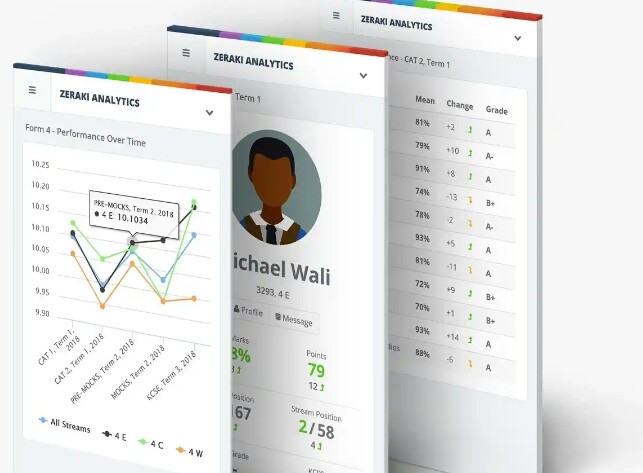In a round led by Acumen Fund, the Kenyan edtech company Zeraki parents raised $1.8 million in seed funding for product catalog development and regional growth. Zeraki has constructed a digital learning and school data analytics platform.
In addition to Melvin Lubega, co-founder of Australia-based edtech unicorn Go1, Save the Children Impact Investment Fund, Verdant Frontiers Fintech, Logo Ventures, and Nairobi Business Angels Network (Naiban) took part in the round.
Isaac Nyangolo, co-founder and CEO of Zeraki, said that in addition to helping parents get fee loans, the company plans to make other administrative tools for schools, such as software for making schedules.
Read also: Kenya Edtech Company Snapplify Launches Marketplace Platform For Teachers
Zeraki’s Digital Solutions
“We have built a broad distribution channel covering almost half the high schools in Kenya, and this means we have the opportunity to solve other technology needs for schools,” said Nyangolo.
“We also plan to build more administrative tools for schools and payment products on behalf of parents.” We also reintroduced the previously dormant “We also tested a number of products, such as digital learning platforms and timetabling,” he said.
After expanding in its present markets of Kenya, Uganda, and Guinea, the scale-up also plans to enter ten other ones over the course of the following three years.
“We are expanding first into regions that we understand and have a similar business environment.” “We plan to go into the entire East Africa community first and then explore the Anglophone region,” Nyangolo said.
Zeraki, which was co-founded by Nyangolo and Eric Aude (COO) in 2014, initially provided high school pupils with an interactive digital learning platform that included quizzes and a method to assess their performance, but it has since been discontinued due to the COVID pandemic that struck in 2020. It gained acceptance.
“We realized that schools were purchasing the product but not using it because they lacked the appropriate infrastructure and teachers didn’t know how to integrate it within the school setting.”
We were bootstrapping at the time and didn’t have enough resources to do consumer education. ” But around 2017 we realized that data was actually a much bigger problem in schools,” he said.
Then Zeraki started working on the data analytics solution to help schools better manage the information about their students. The data analytics tool shows how each student, subject, or stream did and allowed teachers to upload grades from their phones.
The platform, which is more popular than digital learning platforms, gives parents a way to check on their children’s academic progress and tuition payments. It also has a bulk messaging tool for communicating with people inside and outside the school.
“Every child needs a report card at the end of the school term. And the platforms for producing these report forms were offline, computer-based platforms. So, teachers had to line up behind two or three computers at a school to do the data entry in order to produce the report forms. By moving this to a mobile-first cloud-based experience, it means that as soon as they are done grading students’ grades at home, the teachers enter the scores on their phones.
Over 5,000 schools and a total of 2 million kids have used the data analytics platform, Nyangolo added. He thinks that demand will keep going up as they move into new areas and as more schools use digital solutions to make their administrative tasks easier.
“Education is yet to be digitalized across most countries in Africa, and there is greater opportunity for us to build this market.” “Laying that foundation that introduces countries, schools, and parents to how technology can solve the problems we have in education and being one of the companies in Africa that have shown that it is possible to do this at scale makes this an exciting opportunity,” he said.
About Zeraki
Zeraki has products for parents, teachers, and schools that make it easier and better to use technology to give a good education. It provides you with a platform where you can study with highly qualified instructors, take tests, and monitor your progress. Some of the best high school teachers in Kenya have added video lessons and tests to the app.

